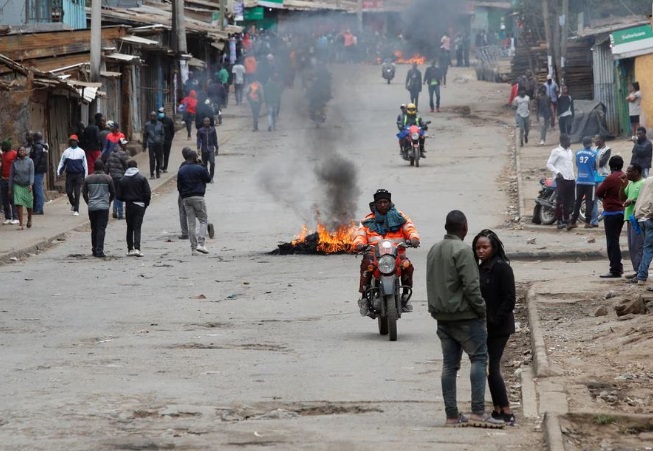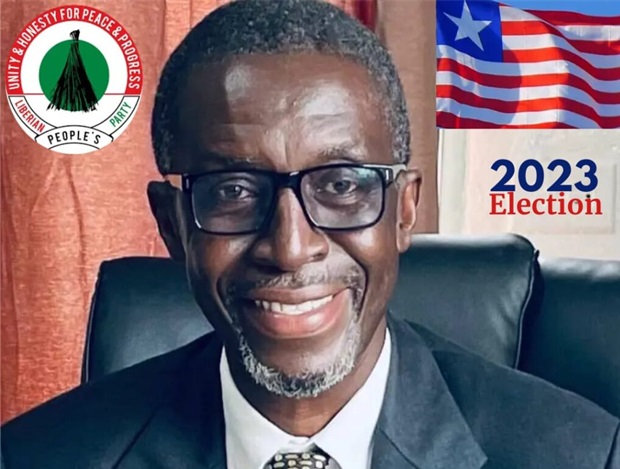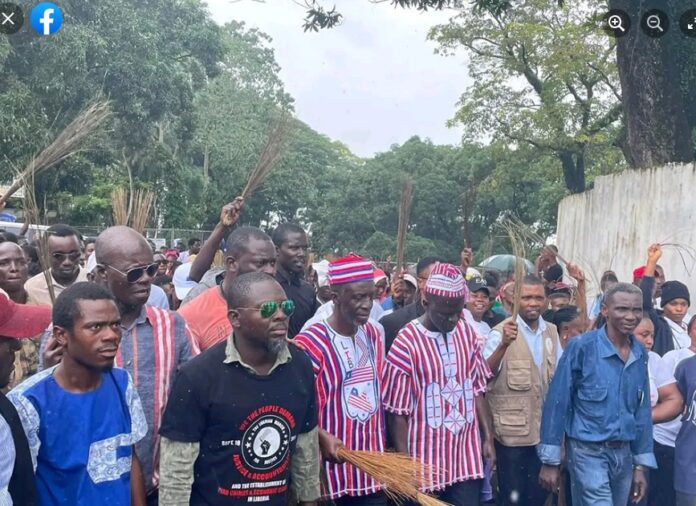NAIROBI, (REUTERS) – Kenyan protesters hurled rocks at police, which responded with volleys of tear gas, in skirmishes in the country’s major cities on Wednesday as three days of demonstrations against high costs of living and tax hikes kicked off.
Two water-cannon trucks and dozens of riot police were stationed at the entrance to the Kibera neighbourhood in Nairobi, where protesters burned tires and engaged in running battles with security forces.
Schools were closed in the capital Nairobi, the port city of Mombasa and in Kisumu, the country’s third-largest city. Nairobi city centre was largely deserted with many businesses shut, while police erected checkpoints on roads leading to State House, President William Ruto’s official residence.
A private sector lobby group says that protests this year have cost the economy more than $20 million per day, and civic leaders have warned about sporadic incidents of apparent ethnic-based violence.
Kenyan politics are often defined by tribal alliances, and fighting along ethnic lines after disputed elections in 2007 and 2017 killed hundreds of people. However, political analysts say the latest protests are unlikely to spiral into widespread ethnic violence as Ruto’s support base cuts across ethnic groups.
A TV station controlled by the Azimio La Umoja opposition party led by Raila Odinga tweeted that his spokesperson had been arrested, while the Nation newspaper also reported arrests of suspected protesters in Homa Bay in the west of the country.
In Migori town, also in the west, two people sought treatment for gunshot wounds sustained during protests there, Citizen TV reported.
Kenya’s police spokesperson did not immediately respond to a Reuters request for comment.
“This government is violating the constitution by being brutal on us while we are trying to uphold the same constitution through peaceful protests,” a protester in Mombasa who gave only his first name, Eric, told Reuters as he poured water over his face to wash away tear gas.
At least 15 people were killed and hundreds arrested in two rounds of protests earlier this month, when police fired tear gas, and in some cases live rounds, at the crowds.
WARNINGS OF VIOLENCE
Azimio called for the protests in part because of tax hikes passed last month by Ruto’s government.
Ruto was elected last August pledging to champion the interests of the poor but prices of basic commodities have risen under his administration.
The government says the levies on fuel and housing, which are expected to raise an extra 200 billion shillings ($1.4 billion) a year, are needed to help deal with growing debt repayments and to fund job-creation initiatives.
Churches and civil rights groups have called for Ruto and Odinga to resolve their differences through dialogue and call off the protests.
“We have appealed to Azimio La Umoja to seek (an) alternative strategy that would not hold the entire country hostage and lend itself to violence and destruction,” Archbishop Martin Kivuva, the chairman of the Kenya Conference of Catholic Bishops, told a news conference.
The tax hikes, which were suspended by the high court, should also be repealed, Archbishop Anthony Muheria, a member of the bishops’ conference, also said.







